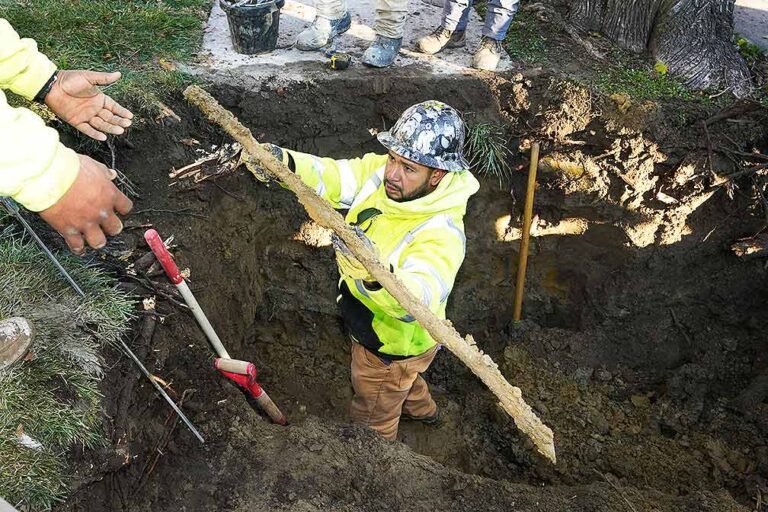LANSING, Mich. — Michigan lawmakers on Thursday approved $4.8 billion in spending, mostly for infrastructure upgrades, with an influx of federal pandemic and other funds that will go toward water systems, roads, parks and other priorities including affordable housing.
The huge supplemental budget plan, which Gov. Gretchen Whitmer will sign, has more than $2.1 billion for drinking water and wastewater infrastructure — including by replacing lead pipes — dam repairs and safety, and the remediation of “forever chemicals” known as PFAS.
The House and Senate approved the main bill 95-7 and 34-3. The deal had been announced late Wednesday by the Democratic governor and Republicans who lead the Legislature’s budget committees.
The plan, which legislators called “momentous” and “historic,” includes $250 million to add high-speed internet to rural and other areas without access. There is an additional $383 million in emergency assistance for low-income renters, $271 million for housing and related aid, and $200 million to rebuild Midland-area dams whose failure led to major flooding in 2020.
Negotiators allocated $250 million to improve state parks and recreation areas, including $30 million to put a state park near downtown Flint. Another $200 million is for local parks and greenways — split among Detroit, Grand Rapids, a northern Michigan tourism and sports fund, and a statewide parks and recreation grant program.
The plan’s centerpiece is water.
It allots about $1.4 billion of $6.5 billion in federal funds over which the state has flexibility to drinking water, sewer and storm water infrastructure. Some $45 million is directed toward Benton Harbor, home to Michigan’s latest lead-in-water crisis following an earlier one in Flint; $75 million is to replace lead service lines in Detroit; $72 million is for wastewater projects in Macomb County.
Schools and childcare facilities will get $50 million to buy water filters; $66 million is to install backup generators at highway pump stations to prevent flooding if there are power outages.
“Water is life. And this an extremely big, once-in-a-lifetime opportunity for us to invest in water infrastructure,” said Rep. Julie Rogers, a Kalamazoo Democrat.
House Appropriations Committee Chair Thomas Albert, a Lowell Republican, said the one-time spending “does not grow government dependence or create long-term ongoing government programs. Everyone in Michigan realizes our infrastructure needs improvement.”
The plan also disburses federal infrastructure funding that was enacted by Congress and President Joe Biden in November, boosting road and bridge work and authorizing water infrastructure loans.
Sen. Ruth Johnson, a Holly Republican, said she voted no because the legislation no longer has $50 million to help homeowners whose wells are contaminated. She estimated that a quarter of the state’s residents rely on private wells for their drinking water.
Legislators also OK’d $88 million in state-funded infrastructure earmarks for specific projects and sent a $50 million state subsidy to Michigan Potash and Salt Co. It is working to open a mine near Evart. Potash is used in crop fertilizers.
Lawmakers also deposited $100 million to help shore up the unemployment benefits fund and allotted $29 million to improve customer service and hire employees to combat fraud.
Michigan has $2.8 billion remaining in federal discretionary aid that was enacted a year ago.
The Associated Press is an independent global news organization dedicated to factual reporting. Founded in 1846, AP today remains the most trusted source of fast, accurate, unbiased news in all formats and the essential provider of the technology and services vital to the news business. The Trucker Media Group is subscriber of The Associated Press has been granted the license to use this content on TheTrucker.com and The Trucker newspaper in accordance with its Content License Agreement with The Associated Press.










